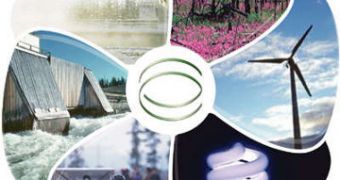It is a well-known fact that countries such as Greece, Italy, Portugal, Spain and Ireland both have significant debts to the European Union and are tremendously resourceful in terms of sun, wind or geothermal energy.
This is why Sweder van Wijnbergen, a Dutch economist, decided to take time and seriously look into the possibility of having these countries pay back their debts by lending areas of land where renewable energy could be harvested most efficiently.
Thus, creditors would be given a free hand to invest in having solar panels, wind turbines or geothermal power stations installed and put to work in these countries.
Preliminary reports indicate that, by renouncing their rights over 1-2% of their territories, Greece, Italy, Portugal, Spain and Ireland could pay back roughly 30% of their debts to the European Union or to other creditors.
Apparently, high officials in Greece came up with a similar idea last year, when they suggested that international investors come and build solar power plants throughout its territory. Back then, Greece's main priority was to come up with more jobs, as 16% of its population was unemployed.
As cleantechies.com explains, this project poses three major advantages.
First of all, the creditors are sure to get their money back, even if this money will be returned to them in the form of green energy. Thus, they will no longer have to worry about coercing certain countries into paying back whatever it is that they owe them.
Secondly, seeing how we are basically speaking about investment made in a very specific domain, numerous jobs are prone to being created. As one can easily guess, this will also help boost Europe's economy.
Last, but not least, there is the advantage of lending a helping hand to the environment by improving on our renewable energy industry.
From where we stand, the plan has no obvious flaws and we believe that the representatives of countries presently included in the European Union should really give due consideration to this idea.

 14 DAY TRIAL //
14 DAY TRIAL //